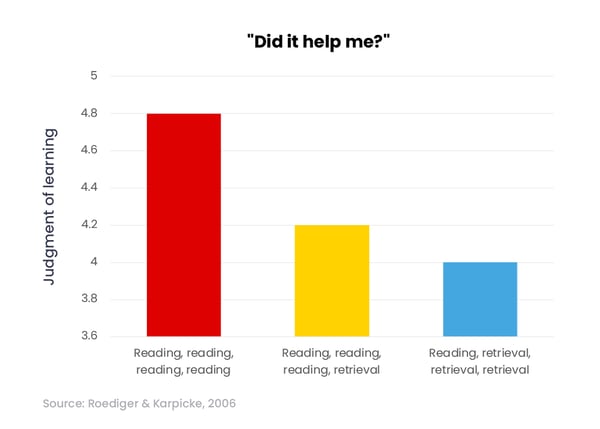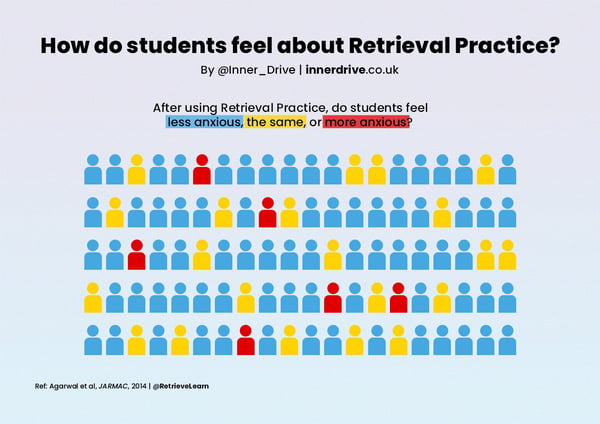It is now hard (near impossible in fact) to go to a staff room, lesson, CPD twilight or education conference without someone mentioning retrieval practice at some stage. The benefits that it can offer are well known. Arguably, it’s one of the best bets available to us for accelerating student learning.
Many teachers are exploring the best ways to weave it into their practice. Be it mini-whiteboards, multiple choice tests, cold-calling/wait times or brain-dumps. And yet, this only paints a very partial insight in to how to best utilise this theory.
The next natural stage of the cognitive science journey that many schools are currently going on is focusing on students implementing Retrieval practice themselves, as part of their ongoing learning or studying for their exams. Unfortunately, this is easier said than done. Let’s take a look at why…
Students don’t naturally choose retrieval practice
Despite its effectiveness, Retrieval practice is not the weapon of choice for most students when it comes to their studying.
One famous study compared how students felt about spending their study sessions either re-reading lots or mainly doing retrieval. The findings below show that given the choice, most students prefer re-reading. This is because it is safe, comfortable and never forces them to confront what they do or don’t know – and as such, students leave their studying sessions with a false sense of confidence and with their short-term self-esteem intact.
In fact, one other study found that this preference for re-reading is probably more pronounced than many of us realise, with recent research reporting that 84% of students use re-reading their notes as a revision technique, with 55% of them stating that it was their number one strategy
They like retrieval practice when it is fun and easy
A really interesting study that has only just been released found that when Retrieval practice was made easy (in this case, by giving lots of hints during it), students rated it as being:
- More fun
- More effective
- Something that they would use in future study sessions
The bad news for all of us is that the researchers also found that when retrieval was made easy, students ended up remembering less. It seems that for it to be effective, Retrieval practice has to get students to think hard about the content. And most people don’t like thinking hard. They like doing things that are fun and easy – which kind of negates the whole point.
Once they do it, they feel way less stressed about it
So far, we have highlighted that students tend to avoid Retrieval practice, favouring re-reading over it, and that when they actually do Retrieval practice, they prefer the more fun but less effective version of it.
But how do students feel once they have actually done some Retrieval practice?
This study asked students that exact question after using Retrieval practice in preparation for their upcoming exams. The researchers found that:
- 72% of students felt less nervous
- 22% of students felt the same
- 6% of students felt more nervous
Find this graphic and many more in our latest book, Teaching & Learning Illuminated!
So, it seems that once we actually get students to practise retrieval, even though they may not have chosen it themselves, they do feel much better for it.
What About SEND students’ relationship with retrieval practice?
We often get asked by teachers and parents if retrieval practice is beneficial for SEND students as well.
Evidence suggests that they get the exact same sort of benefit. In this study, both students with or without ADHD benefited for retrieval practice and utilised it in a similar way. Of course, depending on each student’s individual needs, we may need to make some adaptions, but it seems that the broad guidelines remain pretty similar.
Final Thoughts
There is no denying that students have an uncomfortable relationship with Retrieval practice, at least to start with.
It’s mentally taxing and forces you to confront what you don’t know. So, you can see why students may be reluctant to choose it themselves when working independently. And even once they start doing it, they tend not to naturally understand the conditions under which it works best.
So, what does this mean? We need to explicitly teach retrieval practice to students (and probably their parents too). Once we do get students to engage with it, not only will they learn from it, they will feel better about their learning too.









